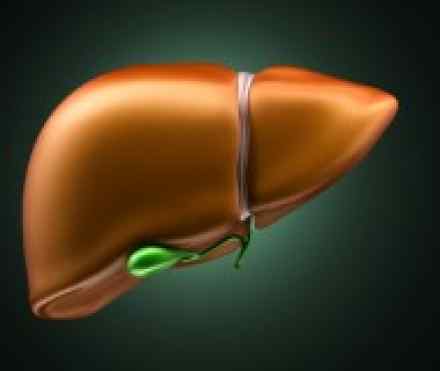
What is it?
- Enlarged liver describes a liver that is larger than normal in size. The liver is a large, football-shaped organ found in the upper right portion of your abdomen.
- Enlarged liver isn't a disease. Instead, enlarged liver is a sign of an underlying problem, such as liver disease, congestive heart failure or cancer.
- Treatment for enlarged liver involves identifying and controlling the underlying cause of the condition.
Symptoms
Enlarged liver may cause no additional signs or symptoms.
When enlarged liver occurs because of liver disease, it may be accompanied by:
- Abdominal pain
- Fatigue
- Yellowing of the skin and the whites of the eyes (jaundice)
Causes
Many disease and conditions can cause an enlarged liver, including:
Liver diseases
- Cirrhosis
- Hepatitis caused by a virus — including hepatitis A, B and C — or caused by infectious mononucleosis
- Nonalcoholic fatty liver disease
- Alcoholic fatty liver disease
- A disorder that causes abnormal protein to accumulate in your liver (amyloidosis)
- A disorder that causes copper to accumulate in your liver (Wilson's disease)
- A disorder that causes fatty substances to accumulate in your liver (Gaucher's disease)
- Fluid-filled pockets in the liver (liver cysts)
- Noncancerous liver tumors, including hemangioma and adenoma
- Obstruction of the gallbladder or bile ducts
- Toxic hepatitis
Cancers
- Cancer that begins in another part of the body and spreads to the liver
- Leukemia
- Liver cancer
- Lymphoma
Heart and blood vessel problems
- Blockage of the veins that drain the liver (Budd-Chiari syndrome)
- Heart failure
- Inflammation of the tissue surrounding the heart (pericarditis)
- Problems with the heart's tricuspid valve (tricuspid regurgitation)
Risk factors
You may be more likely to experience enlarged liver if you have a liver disease. Factors that may increase your risk of liver problems include:
- Excessive alcohol use. Drinking large amounts of alcohol can be damaging to your liver.
- Large doses of over-the-counter medicines. Taking larger than recommended doses of certain over-the-counter medicines, can increase your risk of liver damage.
- Certain herbal supplements. Certain supplements can increase your risk of liver damage, including black cohosh and mistletoe.
- Certain infections. Infectious diseases that can increase your risk of liver damage include malaria and Q fever.
- Hepatitis viruses. Hepatitis A, B and C can cause liver damage.
Diagnosis
A physical exam to detect enlarged liver
Your doctor may determine your liver is enlarged by feeling your abdomen during a physical exam. The doctor can estimate the size of your liver by feeling how far it extends below your rib cage. Your doctor may also note the texture of your liver. Depending on the underlying cause, an enlarged liver may feel soft, firm or irregular. Sometimes lumps are present as well.
Additional procedures
Once your doctor determines that you have an enlarged liver, other tests and procedures may recommended to learn the cause. Additional tests and procedures may include:
- Blood tests. A sample of your blood may be tested to determine your liver enzyme levels. This can give clues about the health of your liver. Blood tests can also reveal viruses that can cause enlarged liver, such as the hepatitis viruses.
- Imaging tests. Imaging tests that allow your doctor to examine your liver include computerized tomography (CT) or ultrasound.
- Removing a sample of liver tissue for testing (liver biopsy). Your doctor may recommend a liver biopsy to collect a sample of liver tissue for laboratory testing. A liver biopsy is often done using a long, thin needle that's inserted through your skin and into your liver. The needle draws out a core of tissue that is then sent to a laboratory. Lab tests may reveal what's causing your enlarged liver.
Treatments and drugs
Treatment for enlarged liver involves diagnosing and treating the underlying condition that's causing it.
Alternative medicine
Some herbal supplements used as alternative medicine treatments can be harmful to your liver. To protect your liver, talk with your doctor about the potential risks before you take:
- Black cohosh
- Certain Chinese herbs, including ma-huang
- Chaparral
- Comfrey
- Germander
- Greater celandine
- Kava
- Mistletoe
- Pennyroyal
- Skullcap
- Valerian
Prevention
To reduce your risk of liver disease, you can:
- Choose a healthy diet. Choose a diet full of fruits, vegetables and whole grains.
- Drink alcohol in moderation, if at all. Limit yourself to one drink a day, for women and older adults, or two drinks a day, for men.
- Follow directions when taking medications. Limit yourself to the recommended doses when taking over-the-counter medications.
- Limit contact with chemicals. Use aerosol cleaners, insecticides and other toxic chemicals only in well-ventilated areas. In addition, wear gloves, long sleeves and a mask.
- Maintain a healthy weight. If your weight is healthy, work to maintain it. If you need to lose weight, cut back on the number of calories you eat each day and increase the amount of daily exercise. Ask your doctor about healthy ways to lose weight.
- Quit smoking. If you smoke, quit. Ask your doctor about strategies to help you quit. If you don't smoke, don't start.
- Use caution with supplements. Talk with your doctor about the risks and benefits of herbal supplements before you take them.
References:
https://en.wikipedia.org/wiki/Hepatomegaly
http://www.healthline.com/symptom/liver-enlarged
https://www.healthgrades.com/symptoms/enlarged-liver
http://www.medicinenet.com/script/main/art.asp?articlekey=97617
http://www.medicinenet.com/liver_disease/page2.htm

